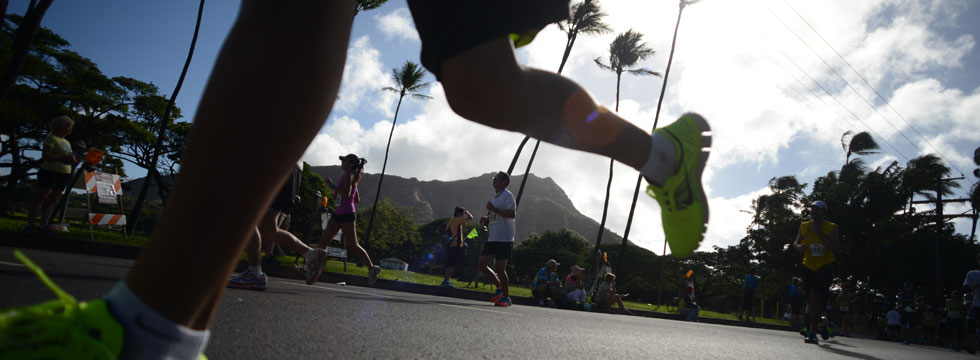Comorbid Bipolar and Alcohol Use Disorder A Therapeutic Challenge PMC
August 1, 2023 7:11 am Leave your thoughtsA support group to build connections with others who are going through similar experiences can be beneficial. Part of the reason alcohol addiction is so prevalent in the United States is due to its wide availability and affordability compared to other substances, in addition to the fact that it can be purchased legally. If your loved one is reluctant to seek treatment or follow their prescribed treatment plan, consider talking with them about your concerns.
In people with bipolar disorder or AUD, it’s believed that the chemicals that regulate moods don’t work properly. Your environment as a young person can also influence whether you’re likely to develop AUD. The combination of bipolar disorder and AUD can have severe consequences if left untreated. People with both conditions are likely to have more severe symptoms of bipolar disorder. Other mental health conditions such as ADHD, depression, and schizophrenia may present with overlapping symptoms.
- It is also important to provide the person with support and understanding while maintaining the boundaries.
- In the face of the ups and downs, the uncertainties and complexities, embrace the journey with empathy, understanding, and love.
- Consuming alcohol during a depressive phase can increase the risk of lethargy and can further reduce inhibitions.
- Cannabis ranking second after AUD has also been confirmed in other studies (7, 27, 29).
It is important to be vigilant and aware of any potential substance abuse issues that may arise in your spouse, as these can exacerbate the symptoms of bipolar disorder and lead to additional complications. When a person takes their medication, they are in a better position to manage their condition. However, adhering to treatment can be difficult for some people with bipolar disorder. People with bipolar disorder and alcohol use disorder should work closely with a healthcare provider to determine the best medication regimen to manage symptoms. A plan for ongoing treatment or strategies to avoid drinking after a stay in residential treatment will help you avoid relapsing. It is hard work to go through treatment for both bipolar disorder and alcohol use disorder, but if you put in the time and effort it really can be effective.
Treating Bipolar Disorder and Alcohol Addiction
Depending on the diagnostic system (ICD or DSM) used and subject sample studied, bipolar affective disorder (BD) in the general population has a lifetime prevalence between 1.3 and 4.5% (1). Bipolar disorder and alcoholism often coexist due to their potential for providing temporary relief from emotional pain, self-medication of symptoms, or attempting to regulate mood swings. Alcohol can disrupt the balance of mood-stabilizing medications and exacerbate mood swings, intensifying the overall impact of bipolar disorder. It is critical to seek professional help if you suspect that your spouse may have bipolar disorder. A qualified mental health professional, such as a psychiatrist or psychologist, can accurately diagnose bipolar disorder based on a comprehensive evaluation of your spouse’s symptoms, behavior, and personal history. Understanding the bipolar spectrum allows you to recognize that each person’s experience with bipolar disorder is unique.
By Geralyn Dexter, PhD, LMHCGeralyn Dexter, PhD, LMHC, is a mental health counselor based in Delray Beach, Florida, with a focus on suicidal ideation, self-harm, help-seeking behavior, and mood disorders. When bipolar disorder and alcohol use disorder occur together, the combination can be more severe than having each condition independently. To diagnose AUD, a medical or mental health professional will conduct a thorough assessment, including exploring a person’s psychological and physical health history. They will also gather information about a person’s past and current behavior with alcohol and other substances. There is also a greater risk of suicide in individuals who have bipolar disorder and alcohol use disorder. Treatment for substance use disorder is most effective when all your needs are addressed.
A person who consumes alcohol during a manic phase has a higher risk of engaging in impulsive behavior because alcohol reduces a person’s inhibitions. Bipolar disorder affects around 4.4 percent of people in the United States at some time in their lives. Researchers speculate that this may be because caffeine is a stimulant, interferes with sleep, or affects the metabolism of lithium and other medications. Exercise has plenty of physical and mental health benefits — from reducing anxiety and stress to promoting better sleep.
Alcohol And Bipolar Disorder Treatment
For people with bipolar disorder, caution is warranted even with moderate alcohol consumption. Alcohol is a depressant that disrupts chemical messengers in the brain, which may lead to worsened depressive symptoms or trigger hypomania or mania. It is thought that the genes that increase the risk of bipolar disorder may be the same genes that influence alcohol addiction. Genetic differences may affect the brain reward system making people with bipolar disorder more vulnerable to alcohol and drug addiction.
Medications may include mood stabilizers, such as lithium — the most commonly prescribed bipolar disorder med that’s considered a first-line treatment for bipolar disorder. To receive a bipolar 2 disorder diagnosis, you must have had at least one major depressive episode. There is also the possibility that bipolar disorder and alcohol addiction symptoms will present concurrently, which adds a level of complexity to the diagnosis. For both conditions, a healthcare provider usually performs a physical and psychological health assessment. In certain cases, psychosis with delusions or hallucinations can occur in people with bipolar disorder.
Studies have also shown that as many as half of all people with bipolar disorder attempt suicide at least once. A healthy diet, combined with exercise, may also help limit weight gain, which treatment and recovery national institute on drug abuse nida is a common side effect of medical treatments for bipolar disorder. Eating well and keeping fit can help reduce the symptoms of bipolar disorder, particularly the depressive symptoms.
Both valproate and alcohol consumption are known to cause temporary elevations in liver function tests, and in rare cases, fatal liver failure (Sussman and McLain 1979; Lieber and Leo 1992). Therefore, the safety of valproate in the alcoholic population has been questioned because of the potential for hepatotoxicity in patients who are already at risk for this complication. However, recent preliminary evidence suggests that liver enzymes do not dramatically increase in alcoholic patients who are receiving valproate, even if they are actively drinking (Sonne and Brady 1999a).
What is Bipolar Disorder?
Seeing a mental health professional right away is very important if you also have symptoms of bipolar disorder or another mental health condition. Bipolar disorder is defined by mood episodes that fluctuate between highs and lows. When coupled with alcohol use disorder, symptoms of either condition may worsen. There are how long does a hangover last a variety of treatment options, including talk therapy and medication, to treat these conditions separately or as they co-occur. Research indicates a person will experience a decrease in functioning, an exacerbation (worsening) of manic or depressive symptoms, and a higher risk of suicide when these conditions co-occur.
Finding the right treatment plan — including that “just right” mix of meds — is a collaborative process where you and your doctor work as a team. For many people, mania feels pleasurable — even intoxicating — so you may not want those feelings to go away. Because people’s reactions can vary widely and some people may not understand, it’s best to be selective. Researchers haven’t identified a clear link between bipolar disorder and AUD, but there are a few possibilities.
Make self-care a priority by engaging in activities that bring you joy, practicing stress-reducing techniques, and seeking support from friends, family, or support groups. Remember, you cannot pour from an empty cup, and maintaining your own well-being allows you to better support your spouse. Creating a structured environment can promote stability for both partners. Establish consistent routines for daily activities, such as mealtimes, exercise, and sleep, as this can help regulate moods and provide a sense of predictability.
This includes many factors, but most importantly it means that you must be treated for both bipolar disorder and alcohol use disorder. Some research has shown the risk of suicide for people with bipolar disorder is around 15 to 20 times greater than the general population. Avoiding alcohol and illegal drugs is an important part of recovery from episodes of manic or depressive symptoms, and can help you gain stability. It is also important to remember that pushing away behavior is often due to fear or anxiety and should not be taken personally. If the situation becomes unmanageable, reach out to a mental health professional for additional help and guidance. By following these tips, couples in bipolar relationships can work together to manage the condition and create a supportive environment for themselves and their partner.
Categorised in: Sober living
This post was written by vladeta



